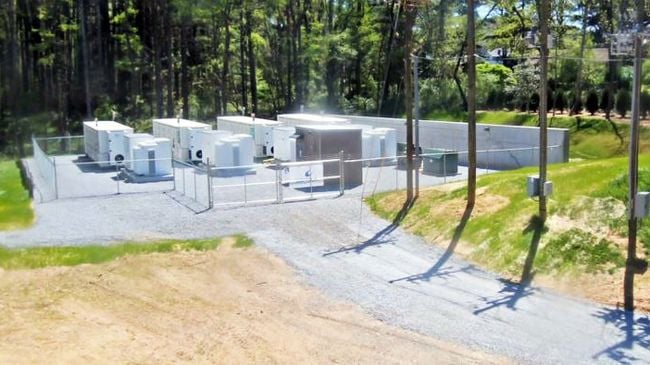
Duke Energy would still choose lithium ions for an upcoming 7.3-hour energy storage system in Florida if it redesigned the project today, a spokesperson said. Energy-Storage.news.
As recently reported on this site, the North Carolina-based energy company recently brought the majority of a 50 MW / 94 MWh pipeline of Battery Energy Storage System (BESS) projects online in Florida.
Projects vary in size and duration, and the latest to be online is a 2,475 MW / 18 MWh unit that will go into service later this year, at John Hopkins Middle School, a Duke spokesperson said. Energy Energy-Storage.news uses lithium-ion battery cells.
They explained that the school is an emergency hurricane shelter, so the company wanted to oversize the battery for longer life. When asked if he considered other battery technologies when designing the project and if he would still choose lithium-ion if he started it from scratch today, they replied:
“At the time of the design of this project, there were no other technologies that were as cost-competitive while still providing the same benefits as lithium-ion.”
“Duke Energy continues to test new technologies and will soon experiment with new chemicals to determine their capabilities; however, if this project were redesigned today, lithium ions would still be the preferred technology due to their cost, performance characteristics and proven reliability. “
The company’s comments are noteworthy and fuel the ongoing debate about lithium’s suitability for long-life energy storage compared to other technologies such as flow-through batteries (although many long-life storage solutions companies may do not consider eight hours to be a long duration at all).
According to system integrator Wartsila, the cost base of BESS lithium-ion projects has increased by 25% year-on-year, thanks to battery cells that have risen in cost as lithium carbonate has seen price spikes of 1,000. %.
Despite this, and claims by flux battery companies that their solutions are cheaper in the long run, lithium-ion continues to be chosen for many six- and eight-hour projects, including a 50 MW / 400 MWh system. in California in March.
The same month, Energy-Storage.news Haresh Kamath, director of distributed energy resources and energy storage at EPRI, the electricity sector-funded research and development and demonstration project organization, said lithium ions could eventually become competitive in Terms of costs for a maximum duration of 24 hours.
The iron flux battery company ESS Inc has issued a rebuttal statement to Energy-Storage.news regarding Kamath’s comments shortly thereafter.
In April, Thomas Cornell, head of energy storage at Mitsubishi Power Americas, told this site that the technology is still the best even with a duration of 10-12 hours.
That said, Duke Energy continues to try and test alternative technologies – in the past it piloted the implementation of Eos Energy Enterprises’ zinc hybrid cathode battery technology for long-life storage and is preparing to be the first to test a new flux. battery made with Honeywell’s proprietary electrolytic chemistry.